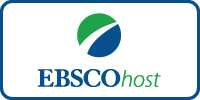Market Segmentation and Competitive Advantage in Nigerian Telecommunications
Abstract
The purpose of this study is to determine the effect of market segmentation on competitive advantage in the Nigerian telecommunications service sector in the Lagos state. Motivation: The Nigerian government's decision to liberalize the communication industry has increased rivalry among enterprises, implying that a market segmentation approach will improve both transaction flow and the quality of life. As a result, enterprises in the telecommunications sector must look beyond their financial capabilities and concentrate their efforts on developing a market positioning strategy that results in competitive advantage. Therefore, this study seeks to identify segmentation dimensions and their influence on competitive advantage and performance holistically: The focus was designed to establish the effect of factors of market segmentation such as measurability, accessibility, size, homogeneity, uniqueness and sustainability of a market segment on competitive advantage in the Nigerian telecom service industry. Data: A study of some selected telecommunications companies in the Lagos State, Nigeria, was adopted. Both purposive and accidental sampling was used to select a sample of 370 members of the population involved in the study using the Taro Yamane. Tools: Simple percentages and frequency tables were used as descriptive statistics, while Pearson correlation and Regression analysis were used for hypotheses testing. Findings: The study results indicate that measurability, accessibility, uniqueness, and size of a market segment are the most significant market segmentation variables that affect business competitive advantage in the Nigerian telecommunication industry. As such, to achieve competitive advantage through market segmentation, these variables must be well identified and strategically attained. Contribution: By comprehensively integrating and connecting the characteristics of market segmentation to competitive advantage, this study provides an understanding meaning to market segmentation based on the conceptual model. The study's implications for policymakers include that they should enhance these segmentation factors by incorporating additional characteristics outside of market segmentation to complement the market segmentation variables examined in this study in order to maintain competitiveness. Additionally, marketers may leverage customer relationship management (CRM) to create profitable market segments capable of recruiting new clients and lowering customer retention costs.

This work is licensed under a Creative Commons Attribution-NonCommercial-NoDerivatives 4.0 International License.

















